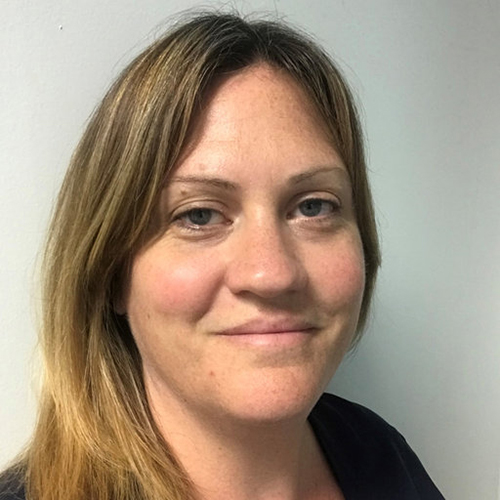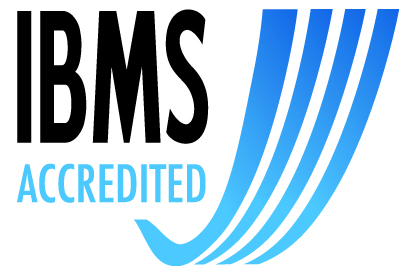Biomedical Science (Extended), BSc Hons
Explore human health and disease with our extended Biomedical Science degree. This course includes a foundation year and requires lower entry points than our three-year degree.
Our extended degree in Biomedical Science explores human health and disease. We focus on many areas of medical and biosciences, examining the mechanisms of disease, diagnostic pathways and therapeutic intervention. Our lecturers are experienced academics in areas including cell biology, cancer biology, microbiology and haematology.
This extended Biomedical Science course begins with a foundation year to prepare you for degree-level learning. After this, you'll progress to our three-year degree, which includes practical modules, real-life clinical case studies and a research project. The course is accredited by the Institute of Biomedical Science, a leading professional body in the field.
We provide exciting work experience opportunities at a range of organisations, from multinational firms, government agencies and the NHS to smaller companies engaged in research, analytical services and manufacturing. You'll graduate ready for roles in the public and private healthcare sectors, from the NHS, Medical Research Council and Health and Safety Executive to forensic laboratories and pharmaceutical companies. Former students have gone on to work for GlaxoSmithKline (GSK), Dyson, Eon, PS Analytical, E-liquids and NHS hospitals.
This programme may include a range of learning activities such as on-campus teaching, practical sessions, workshops, placements or field-based work. These activities form part of the core learning experience.
We welcome applications from disabled students and those with long-term health conditions. We encourage you to contact our Student Wellbeing team as early as possible so we can discuss your individual needs and explore reasonable adjustments. Please also visit our webpage to find out more about support available at the University.
UCAS points
64 (full requirements below)
Course/institution codes
C743 M BSc/BioME
School
Location
Duration
- 4 years full-time
- 5 years sandwich
Start month
September
Home* /international fees 2026/27
£9,790 /£17,975
What you should know about this course
* Home fees
The government regulated undergraduate home tuition fee rate for 2026-27 has been confirmed as £9,790 per year.
What you will study
This course is being refreshed for 2026/7 building-in employability, real-world problem solving skills, and wellbeing initiatives for a future-focused learning experience. Modules shown are indicative topics and will be updated in Spring 2026.

Osman Dufailu
Senior Lecturer in Immunology

Laura Pellatt
Associate Head of School - Student Success (SCI), School of Science
About the course team
Welcome to our biomedical science course. When you join us, you'll be taught by an experienced team whose expertise and knowledge closely reflects the modules of this course. The team includes senior academics, professional practitioners with industry experience, lab technicians, and external experts who provide guest lectures on some modules. Our PhD researchers also offer lab support, which our undergraduate students find very useful.
Come and meet us
We are offering virtual events so you can still experience how Greenwich could be the right university for you.
Next Open Days
Got a question?
To find out more about our Open Days and Campus Tours or if you need any assistance, please email opendays@gre.ac.uk.
Entry requirements
- 64 UCAS Tariff points which must include one of the following:
- A Level: including one of the following STEM subject
Accepted STEM subjects: Further Mathematics, Statistics, Physics, Design Technology, Chemistry, Engineering Science, Computer Science, Electronics, Environmental Science, Geology, Science and Economics. - BTEC National: in relevant STEM subject
Accepted STEM subjects: Further Mathematics, Statistics, Physics, Design Technology, Chemistry, Engineering Science, Computer Science, Electronics, Environmental Science, Geology, Science and Economics. - A Level and BTEC National: including one of the following STEM subject
Accepted STEM subjects: Further Mathematics, Statistics, Physics, Design Technology, Chemistry, Engineering Science, Computer Science, Electronics, Environmental Science, Geology, Science and Economics. - International Baccalaureate: 24 points overall including Higher Level Science.
- Access to Higher Education Diploma: in one of the following STEM subject
Accepted STEM subjects: Further Mathematics, Statistics, Physics, Design Technology, Chemistry, Engineering Science, Computer Science, Electronics, Environmental Science, Geology, Science and Economics. - T Level: in relevant STEM subject
Accepted STEM subjects: Further Mathematics, Statistics, Physics, Design Technology, Chemistry, Engineering Science, Computer Science, Electronics, Environmental Science, Geology, Science and Economics. at grade Pass (with D or E on the Core).
- A Level: including one of the following STEM subject
We make Contextual offers to this programme. Applicants that meet specific eligibility criteria will be made a contextual offer with a reduced tariff of up to 16 UCAS Tariff points. Other entry requirements such as GCSEs, Interview, etc., will still need to be met. For further information, please see our Contextual Admissions policy.
We also accept applications if you wish to transfer from another institution, and have already studied 1 or 2 years of a relevant course at level 4 or 5 and wish to continue your education at the University of Greenwich.
For more information, use our contact form or call us on 020 8331 9000.
You can also read our admissions policy.
Available to overseas students?
Yes
Can I use Prior Learning?
Find out more on our Recognition of Prior Learning pages.
How you will learn
Teaching
Learning takes place through a combination of timetabled learning and independent study.
You can view more information about how each module is taught within our 'What you will study' section.
Seminars and workshops enable you to discuss and develop your understanding of topics covered in lectures in smaller groups. You will also be able to meet your personal tutor. Timetabled learning may fall between 9am and 9pm depending on your courses and tutorials.
Class sizes
First-year courses may be shared across a number of Science programmes, resulting in large lecture groups of up to 100 students. Subject specific courses tend to be smaller, for example a typical Biomedical Science intake would have 70 students in a dedicated biomedical course. Similarly, in the second and third year, some core courses taken by all students will be equally large, while optional courses will be smaller, between 20-40 students per group, enabling close interaction with lecturers.
Independent learning
At university, you must develop the ability to work more independently than you have done before. In the early stages of the degree, you will receive a higher level of support from module leaders and personal tutors. In years 2 and 3, you will need to demonstrate an increasing ability to build upon material delivered in lectures and laboratories through independent reading. Greenwich graduates should be able to think and work independently, analytically and creatively to solve problems.
Overall workload
If you are studying full-time, you should expect the workload to be similar to a full-time job. For part-time students, this will reduce in proportion with the number of courses you are studying.
Assessment
You can view how each module is assessed within our 'What you will study' section.
Each course has formal assessments which count towards your grade. Some courses may also include 'practice' assignments, which help you monitor progress and do not count towards your final grade.
Feedback summary
University policy is to give feedback on assignments within 15 working days of the coursework submission date. Examination results will be available within 28 days.
Dates and timetables
The academic year runs from September to June.
Full teaching timetables are not usually available until term has started. For any queries, please use our contact form.
Official statistics on Discover Uni
Full time
Fees and funding
Tuition fees
| Cohort | Full time | Part time | Distance learning |
|---|---|---|---|
| Home* | £9,790 | N/A | N/A |
| International | £17,975 | N/A | N/A |
University is a great investment in your future. English-domiciled graduate annual salaries were £10,500 more than non-graduates in 2023 - and the UK Government projects that 88% of new jobs by 2035 will be at graduate level.
(Source: DfE Graduate labour market statistics: 2023/DfE Labour market and skills projections: 2020 to 2035).
* Home fees
The government regulated undergraduate home tuition fee rate for 2026-27 has been confirmed as £9,790 per year.
Other costs
Safety equipment
Science students are provided with lab coat and safety glasses free of charge. You'll be expected to pay for prescription safety glasses (approx. £90+) if you choose to purchase them.
Field trips
The cost of field trips is activity dependant. Some are free, while others may require a contribution. You are not obliged to pay for field trips in order to complete your course.
Professional memberships
The standard professional memberships attached to accredited courses are covered by your tuition fees. You are welcome to take up additional professional memberships at your own cost.
Resources
Course texts and other study resources are available from the Drill Hall Library. You may wish to purchase your own copies. You also receive an allowance for printing costs, which you can top up if required.
Scholarships and bursaries
We offer a wide range of financial help including scholarships and bursaries.
The Greenwich Bursary
This bursary is worth £700 for new undergraduate students with a low household income, entering Year 0 or 1 who meet the eligibility criteria.
EU Bursary
Following the UK's departure from the European Union, we are supporting new EU students by offering a substantial fee-reduction for studying.
Financial support
We want your time at university to be enjoyable, rewarding, and free of unnecessary stress, so planning your finances before you come to university can help to reduce financial concerns. We can offer advice on living costs and budgeting, as well as on awards, allowances and loans.
Careers and placements
Will I have a work placement?
Students go to a range of companies and organisations of varying sizes for their placements, including large multi-national firms, government agencies, the NHS and small to medium sized companies engaged in research, analytical services and manufacturing.
- Previous students have worked in: Eon, Dyson, ADEY, PS Analytical and E-liquids, GSK, NHS hospitals.
- IAESTE (British Council) placements to Brazil, Dubai and Poland.
- We have a dedicated team to search for and inform students about relevant opportunities and help students prepare for interviews.
How long is my placement?
Students can undertake a summer placement for between 6 weeks and 3 months, which can be related to a credit rated course at Level 6, or can be undertaken for work experience and acknowledged by a Certificate of Industrial Experience.
You are also encouraged to apply for sandwich placements lasting 9-12 months, which sit between the second and third year of the degree.
What are the financial arrangements?
We expect students to be treated like other employees of the company or organisation, wherever possible. It is also expected that students on sandwich placements will be paid throughout their time with the company. In some cases, students on summer placements have had expenses only covered by the company.
Students on sandwich placements pay a reduced fee to the University for their placement year.
What sort of careers do graduates pursue?
This course will prepare you for employment in both the public and private healthcare sectors, including in the National Health Service, National Blood Service, Health Protection Agency and Medical Research Council, veterinary service, the Health and Safety Executive, forensic laboratories and the pharmaceutical industry.
Are internships available?
Interns can gain valuable employment experience within the faculty – subject to resources. Personal tutors will be able to advise students on where to access programme internships.
Do you provide employability services?
We have a team dedicated to enhancing student employment outcomes. Our Employer Partnerships Manager develops relationships with companies to provide placement and employment opportunities. Other members of the team help you to understand the jobs market and HR selection processes, produce effective CVs and cover letters, and prepare final-year students for graduate job and placement applications.
Accommodation
Medway campus in Kent
Our Medway halls of residence are all located on-campus, with facilities include an on-site café, launderette and bar. And the halls are located within minutes of the historic Chatham dockyard and Chatham and Gillingham town centres.
With student-run social events, modern ensuite rooms and communal shared spaces, you’ll find that living in halls of residence will be a highlight of your University of Greenwich experience.
Rooms start at £172.06/wk and include Wi-Fi, utility bills and 24-hour residential support. Our Medway accommodation boasts 350 rooms with 24/7 security, and resident car parking permits are available.
Support and advice
Academic skills and study support
We have a Learning Skills Coordinator and a writing Fellow, both of whom support students in improving their writing skills. Additional Maths support is also available through the Drill Hall library. All students are allocated a personal tutor throughout the duration of their studies. We also offer an additional course 'Learning Skills for Science' aimed at Foundation stage students. The academic support available will enhance student performance.
Support from the department
Students in the Faculty of Engineering and Science have access to several dedicated support roles:
- The Faculty Student Advisor (FSA) provides pastoral care and guidance on extenuating circumstances, faculty-level resits, and Personal Development Planning.
- Education Officers assist with programme- and module-specific queries, including timetable issues.
In addition, the university-wide STAART programme (AccessAbility Retention and Transition) offers tailored support for students with disabilities, helping to ensure a smooth and successful academic journey.
Not quite what you were looking for?
We've got plenty of other courses for you to choose from. Browse our undergraduate courses or check our related courses below.....
Biology and biomedical science at the University of Greenwich
Study a course that will prepare you to enter a profession very relevant to today. Learn from experts whose research is changing lives around the world and gain a solid foundation in the subject.
Visit our biology and biomedical science degrees page.
Biology and biomedical science degrees
Science at the University of Greenwich
Whatever subject you’re into, from human health to climate change, our supportive learning environment will prepare you for your future career. Many of our courses are accredited by professional bodies.
Visit our science degrees page.
Discover the world through science
Interested in studying a science subject? From pharmacy to forensics, we have so much to offer. Catch a glimpse of the opportunities available to you.
Mode of study
Select from the dropdown below.
| Course level | |
| UCAS code | |
| Duration | |
| Location |









